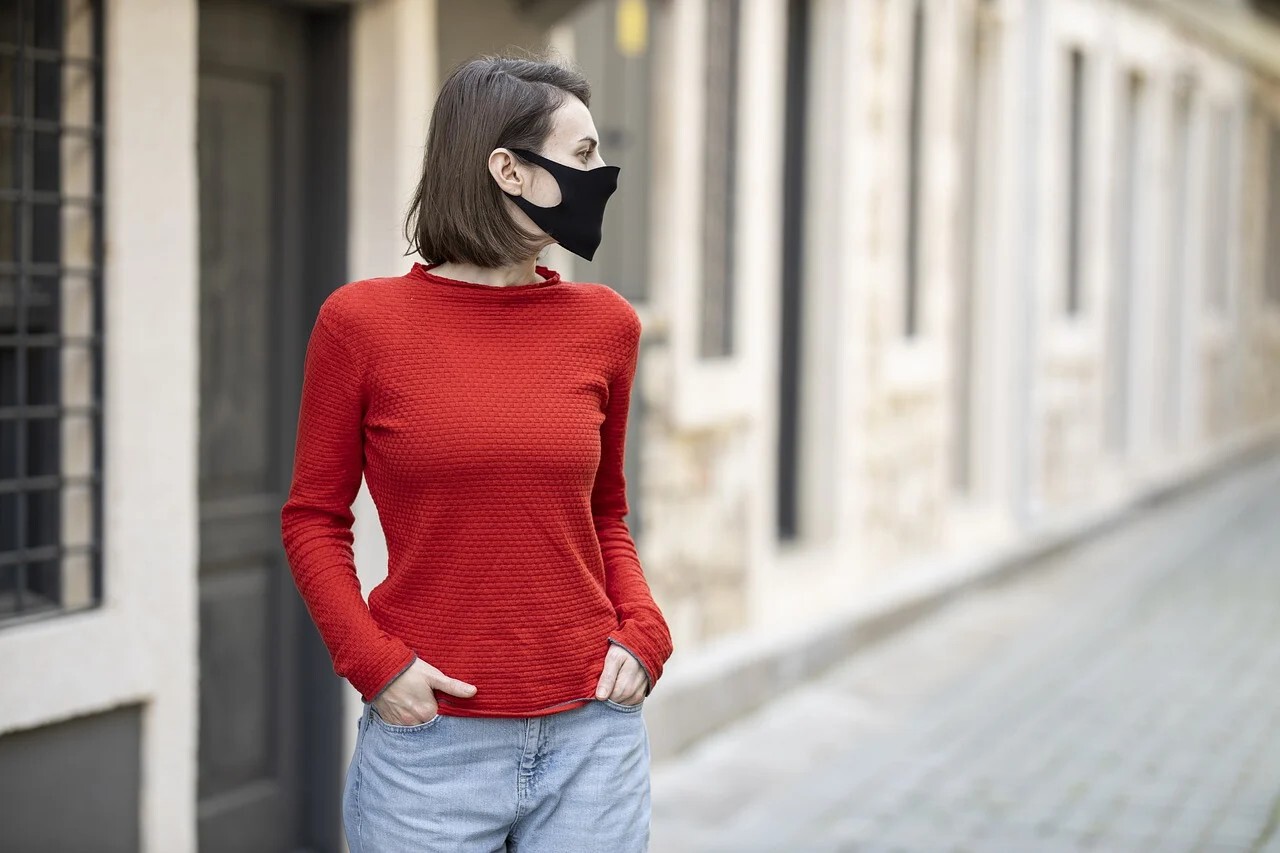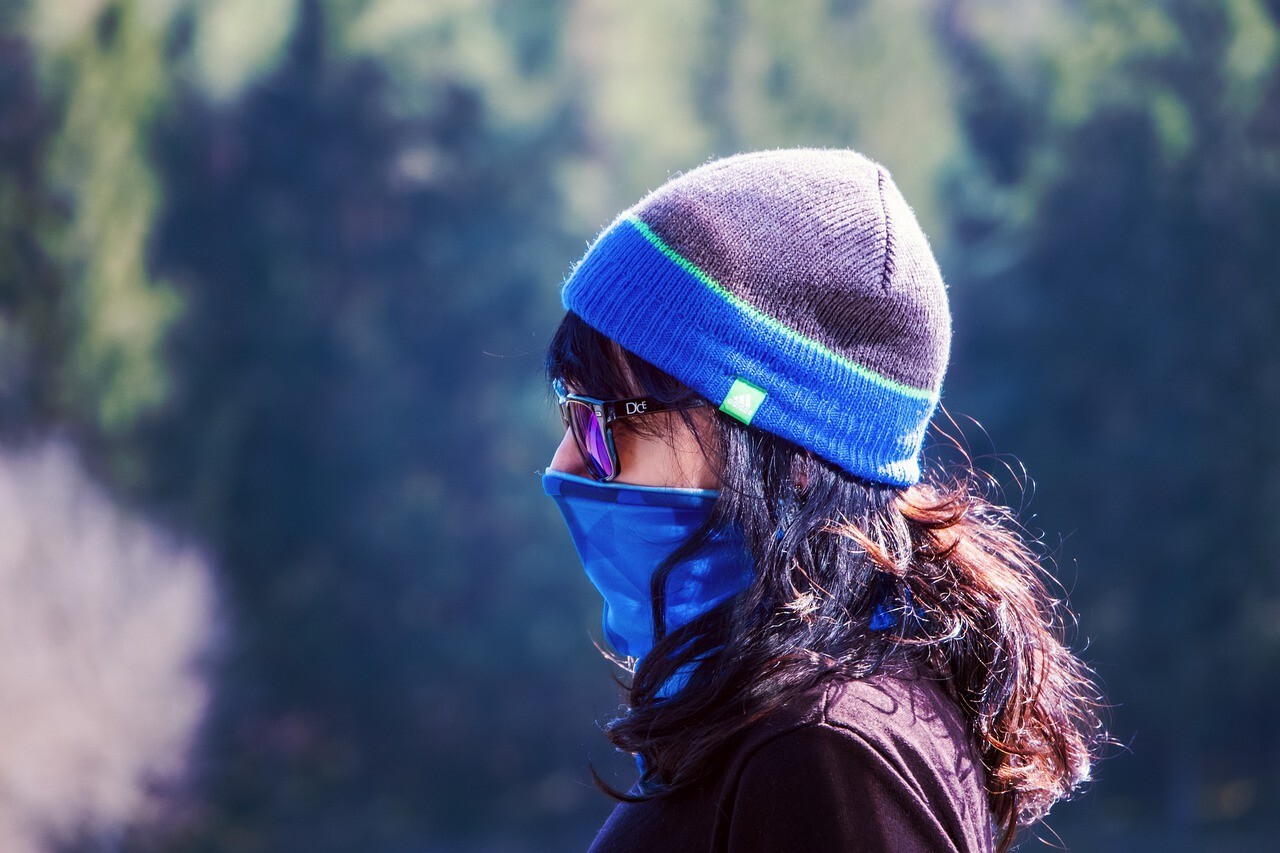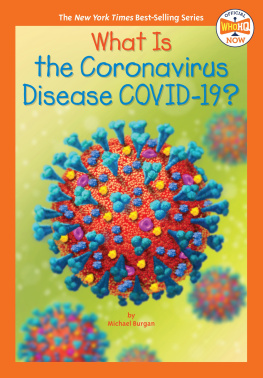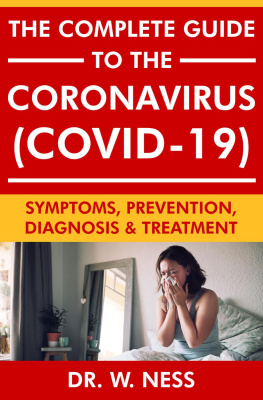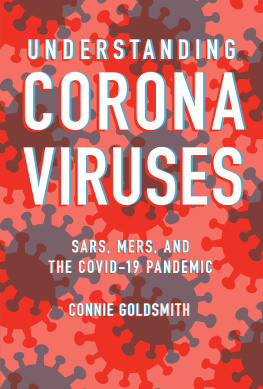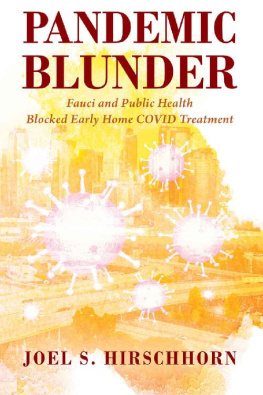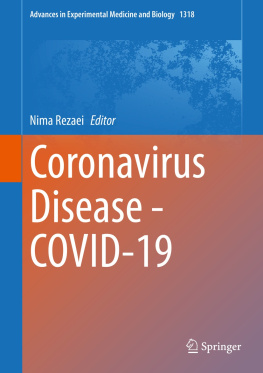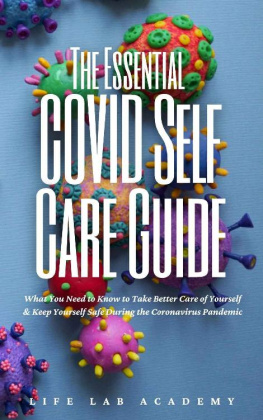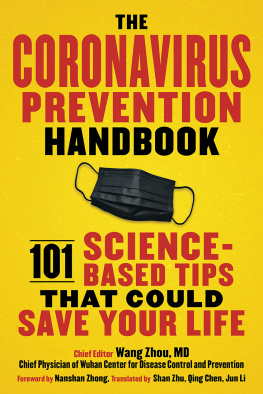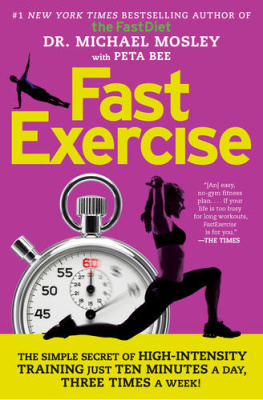Book Description
The coronavirus has caused many areas to enter a state of quarantine, which has led many of us to drastically alter our daily routines in an effort to stay safe and healthy. What should you do to minimize your risk of infection? Check out the top tips from medical professionals and pandemic experts for staying safe in this trying time.
Staying Safe from Coronavirus
Steps You and Your Family Should Take
from Top Public Health Professionals
Jake Kirby
Copyright 2020 - All rights reserved.
The content contained within this book may not be reproduced, duplicated or transmitted without direct written permission from the author or the publisher.
Under no circumstances will any blame or legal responsibility be held against the publisher, or author, for any damages, reparation, or monetary loss due to the information contained within this book, either directly or indirectly.
Legal Notice:
This book is copyright protected. It is only for personal use. You cannot amend, distribute, sell, use, quote or paraphrase any part, or the content within this book, without the consent of the author or publisher.
Disclaimer Notice:
Please note the information contained within this document is for educational and entertainment purposes only. All effort has been executed to present accurate, up to date, reliable, complete information. No warranties of any kind are declared or implied.
Readers acknowledge that the author is not engaged in the rendering of legal, financial, medical or professional advice. The content within this book has been derived from various sources. Please consult a licensed professional before attempting any techniques outlined in this book.
By reading this document, the reader agrees that under no circumstances is the author responsible for any losses, direct or indirect, that are incurred as a result of the use of the information contained within this document, including, but not limited to, errors, omissions, or inaccuracies.
Table of Contents
Introduction
Recommendations for how to stay safe from the coronavirus, also known as COVID-19, are everywhere. However, it can still be difficult to know the best actions to take. Some sources of information dont provide clear and actionable advice, instead relying on vague concepts like social distancing and flattening the curve without explaining exactly what these words mean in the current situation. This can leave you uncertain as to whether you are following regulations correctly. Others provide faulty advice, misleading you and resulting in confusion that can put you at risk.
The best way to ensure you are taking the right steps to keep yourself and your family safe is to listen to the experts. This eliminates any possible risk of misinformation and ensures all of your knowledge is up to date and as correct as it can be, which keeps you safer.
Here are the most important pieces of advice that experts agree are critical to keeping yourself healthy during the coronavirus pandemic and lessening the threat of the virus for everyone.
Stay at Home
The absolute best thing you can do for your health right now is to stay at home as often as possible. Stop visiting friends and family, limit your trips to the store or make use of delivery services, and dont put yourself at unnecessary risk unless you have to. Strive to keep your trips out of the house limited to essential supply and grocery runs, and the occasional walk for some fresh air. If you do take a walk, avoid potentially crowded parks and walking trails, and keep your distance from other walkers.
Why is it so important to stay at home? Organizations like the Center for Disease Control and Prevention (CDC) want you to stay home because COVID-19 is thought to spread mainly through close contact from person-to-person in respiratory droplets from someone who is infected (CDC, 2020, para. 1). The logic here is straightforward; if you stay away from people who could potentially be carriers of the disease, the coronavirus will not be able to spread to you. Remember that the virus can be spread even by people 2
who do not show symptoms, so dont break this guideline just because a friend or family member doesnt appear sick.
Many state governments have enacted stay-at-home orders, which vary by location. Check your local news for information about your specific states current policies, but it is always better to err on the side of caution and stay inside even if your state does not have an enforced quarantine policy.
If you feel yourself growing a little stir-crazy, look for activities and hobbies you can practice at home. Catch up on missed TV shows, get some reading done, work on a puzzle, learn a new skill, or just spend some quality time with your family. It can be tough, but if you find a way to occupy your time you will have a much easier experience.
Of course, it is not possible for many people to stay at home. Those who are considered essential workers and who are still being called in to work must venture out of their houses on a regular basis, and even those who are not essential workers must still leave occasionally to pick up necessary purchases. Luckily, there are still many things you 3
can do to decrease your risk of catching the coronavirus when you need to leave the house, though staying home is the most foolproof method.
Use Cloth Masks When Entering a Public Place
If you need to go somewhere public, like to a store or to pick up food, wear a mask.
Initially, masks were not recommended for general public use, but as the coronavirus
spread has grown, experts have changed their recommendation. Now, it is suggested that you wear a mask both for your own safety and the safety of others.
The CDC recommends the use of face masks in public places where it is otherwise difficult to keep your distance from others. Their proper use can reduce the chances of getting sick because they form a barrier between yourself and potentially infected respiratory droplets that might otherwise come in contact with your nose or mouth.
Additionally, face masks keep asymptomatic carriers of the virus from transferring it to 4
the people they come in contact with. Helping to slow the spread of the virus in your community increases the percentage of healthy people and decreases your risk of contracting the virus, so it is important that people adhere to safety regulations like wearing masks.
Still, it is important to remember that wearing a mask does not make you completely immune to getting sick. It can keep some germs at bay and discourage you from touching your face, but simply putting on a mask does not mean you cannot still get the coronavirus through other methods of contamination. Ensure that you follow all other safety guidelines when wearing a mask in public for maximum efficacy.
Cloth Masks Vs. Medical Grade Masks
The current guidelines only suggest using cloth masks. Medical grade masks, such as N95 respirators, are not necessary for general public use. Instead, they should be reserved for people who know they will be coming into extended contact with infected patients, such as doctors, nurses, and caregivers. Typically, most people will not need any more protection than what a standard cloth mask provides, and wasting N95 masks on a trip where you might not need one at all takes them away from where they are most needed. Also, many medical grade masks have special procedures for putting them on and removing them to prevent accidental contamination, which requires training that only medical professionals have. Without this training, the masks are not much more useful than standard cloth ones, so you are better off using cloth masks.

